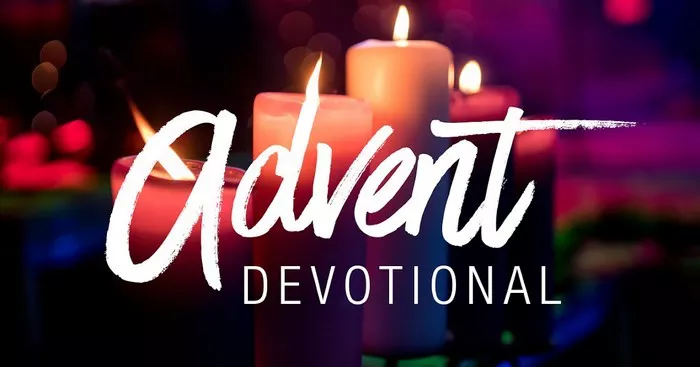In the tapestry of Christian traditions, Christmas and Advent stand as two distinct yet interconnected seasons, each carrying its own significance and symbolism. While they are often intertwined in the popular imagination, a closer examination reveals nuanced differences that shape the rhythm of the liturgical calendar and the spiritual practices of believers. In this article, we embark on a journey to unravel the distinctions between Christmas and Advent, exploring their origins, themes, and theological implications.
Understanding Christmas: A Celebration of Incarnation
Christmas, celebrated on December 25th in most Christian traditions, marks the commemoration of the birth of Jesus Christ. At its core, Christmas is a joyous festival heralding the Incarnation – the belief that God became flesh in the person of Jesus Christ. It is a time of festive gatherings, gift-giving, and familial bonds, as believers rejoice in the wondrous mystery of God dwelling among humanity.
The origins of Christmas can be traced back to ancient Christian traditions that sought to establish a fixed date for celebrating the birth of Christ. While the precise date of Jesus’ birth remains a subject of debate, December 25th was chosen by early church leaders to coincide with existing pagan festivals such as the Roman Saturnalia and the celebration of the birth of the sun god Sol Invictus. Over time, Christmas evolved into a central feast in Christian liturgy, celebrated with solemnity and splendor.
Exploring Advent: A Season of Anticipation
Advent, on the other hand, precedes Christmas and serves as a period of preparation and anticipation for the coming of Christ. The word “Advent” derives from the Latin word adventus, meaning “arrival” or “coming,” reflecting the central theme of expectant waiting that characterizes this season. Lasting four weeks, Advent begins on the Sunday nearest to November 30th and culminates on Christmas Eve.
The origins of Advent can be traced back to the early centuries of the Christian church when believers engaged in fasting and prayer in preparation for the celebration of Christmas. Over time, Advent developed into a structured liturgical season, characterized by themes of hope, peace, joy, and love. Symbolized by the lighting of candles on an Advent wreath, each week of Advent invites believers to reflect on these themes and prepare their hearts for the coming of Christ.
Key Differences and Distinctions
While Christmas and Advent are closely linked, several key differences distinguish one from the other:
1. Focus and Emphasis: Christmas is primarily focused on celebrating the birth of Jesus Christ and the Incarnation. It is a time of rejoicing in the fulfillment of God’s promise to send a Savior into the world. In contrast, Advent directs our attention to the anticipation of Christ’s coming, both in his historical birth and his future return in glory.
2. Liturgical Color and Symbolism: In terms of liturgical color, Christmas is associated with white or gold, symbolizing purity, light, and the glory of Christ’s birth. In contrast, Advent is traditionally associated with the color purple, symbolizing penitence, preparation, and royalty. Additionally, the Advent wreath, with its candles representing the weeks of preparation, is a distinctive symbol of this season.
3. Spiritual Practices: During Christmas, believers engage in festive celebrations, including worship services, Nativity plays, and exchanging gifts. Advent, however, calls for a more reflective and introspective approach, with spiritual practices such as prayer, fasting, and acts of charity fostering a spirit of anticipation and preparation.
4. Temporal Duration: Christmas is a single-day feast celebrated on December 25th, though its observance often extends through the entire Christmas season, which concludes with the feast of the Epiphany on January 6th. In contrast, Advent spans four weeks, beginning on the Sunday nearest to November 30th and culminating on Christmas Eve.
Conclusion
In conclusion, while Christmas and Advent are intimately connected within the Christian tradition, they each offer distinct opportunities for spiritual reflection, anticipation, and celebration. Christmas invites us to marvel at the mystery of the Incarnation, rejoicing in the birth of Jesus Christ as Emmanuel, God with us. Advent, meanwhile, calls us to prepare our hearts and minds for the coming of Christ, both in his historical birth and his promised return in glory. By understanding and embracing the unique significance of each season, believers can deepen their appreciation for the rich tapestry of Christian faith and tradition.
FAQs
1. What are the themes of the Advent devotional?
The themes of the Advent devotional typically revolve around anticipation, preparation, hope, peace, joy, and love. Each week of Advent often focuses on one of these themes, guiding participants through reflections, prayers, and scriptures related to the coming of Christ. The devotional encourages believers to cultivate a spirit of expectancy and readiness for the celebration of Jesus’ birth while also reflecting on the deeper spiritual significance of his coming.
2. What is the Christmas devotional about giving?
The Christmas devotional about giving emphasizes the spirit of generosity and selflessness that lies at the heart of the Christmas season. It encourages individuals to emulate the example of Christ, who came into the world as a gift of love and salvation. The devotional may explore themes such as compassion, charity, and sacrificial giving, inviting participants to consider how they can share their blessings with others during the holiday season. Through acts of giving, believers are reminded of the true meaning of Christmas and the importance of spreading joy and goodwill to all.


